Construyendo Otros Mundos: Environmental, Climate, and Energy Justice Zines
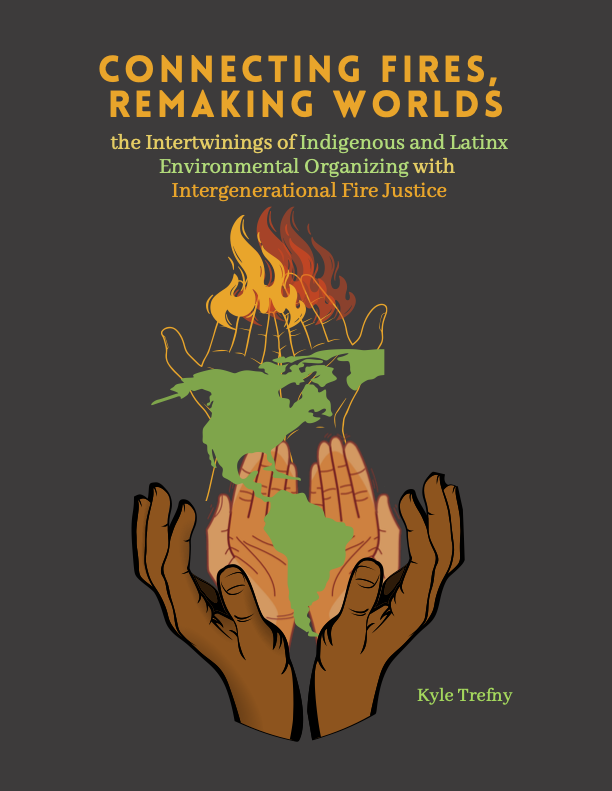
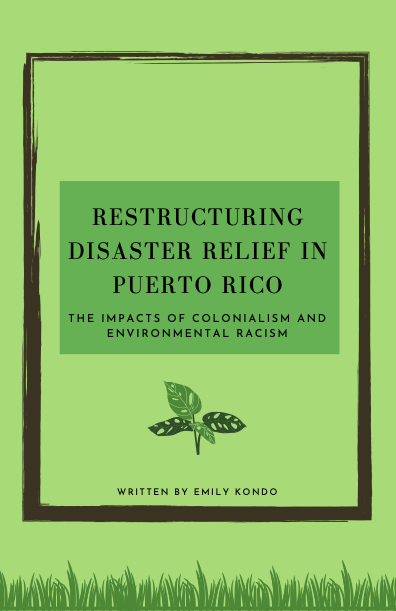
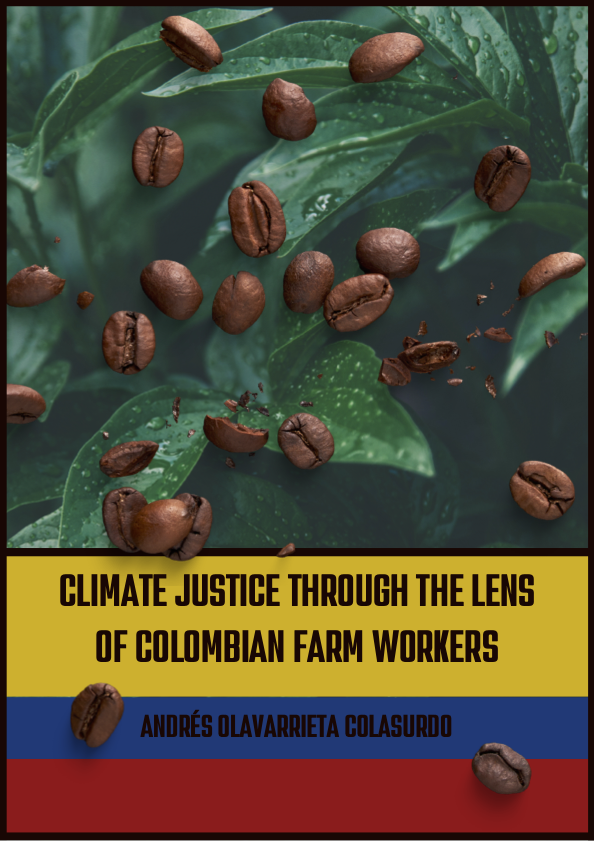
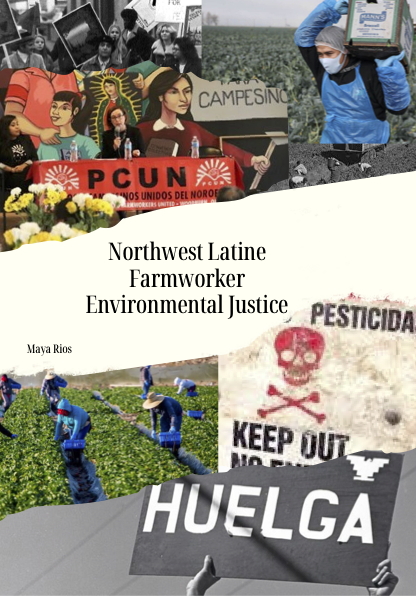
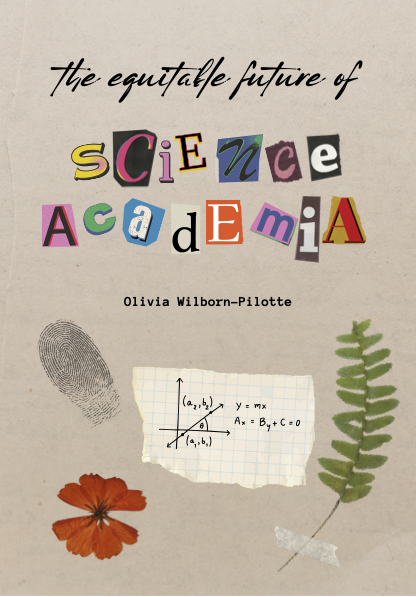
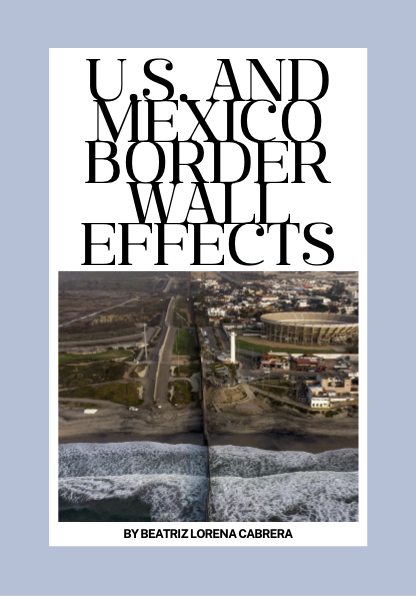
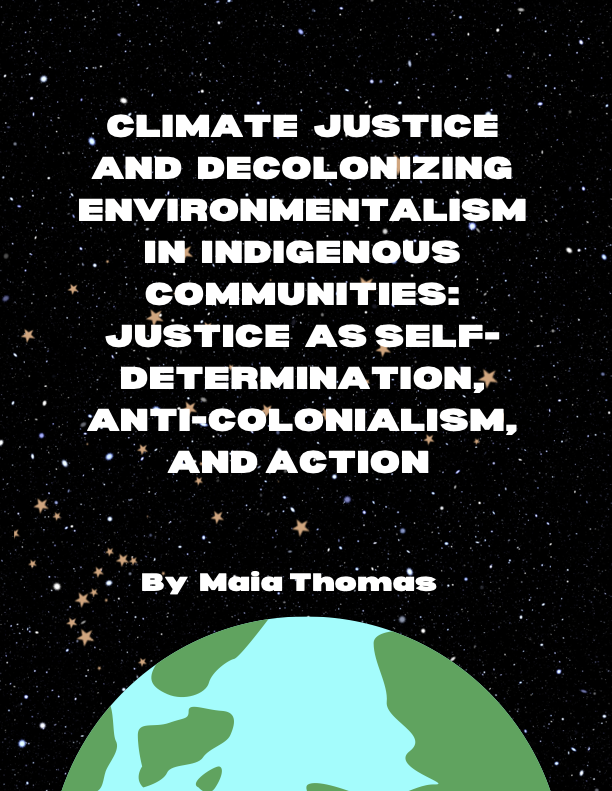
Many Latine individuals and communities are on the frontlines of struggles against environmental, climate, and energy injustices. Engaging these discourses, social movements, and framings involves grappling with the entanglements and co-existences of loss and love, harm and hope, isolation and interconnection, stagnation and struggle, sorrow and joy, terror and tenderness, and crisis and care across physical and digital spaces. We view zines as an important form of critical expression about these topics in undergraduate studies. These do-it-yourself magazines can communicate embodied-intellectual work that strives to ethically amplify efforts to “make livable worlds,” as described by Dr. Hilda Lloréns. Through project-based learning and collaborative scholarship, college students and professors can envision and employ these alternative media spaces for environmental, climate, and energy justice and other entwined struggles.
Activists, practitioners, frontline community members, and scholars point out and refuse disproportionate harms fueled by environmental racism, environmental privilege, racial and disaster capitalism, and coloniality. Rather than reducing these struggles to “damage-centered” narratives, crafting complex, contextualized descriptions that attend to intersectionality is crucial for communicating efforts to survive and flourish. Opening pathways for emergent scholars and scholar-activists to express these complexities in spaces other than in research papers, which often have narrow audiences, can be especially important for reaching broader publics. This reality points to the imperative of varying what forms of communication are valued in college and university environments, especially in research-intensive courses, while consistently reflecting on intersectionality and power.
—
Creating Zines
In Fall 2022, in the University of Oregon’s Clark Honors College, we (Beatriz, Maya, and Maia, as students, and Catalina, as the instructor) experienced the course Environmental, Climate, and Energy Justice in Latinx Communities. Class members worked on an individualized, term-long research project called “Construyendo Otros Mundos” / “Making Other Worlds.” Students were encouraged to address some of the following questions in their creations:
In what ways are anti-colonial and decolonial struggles entangled with environmental, climate, and energy justice, and how is this intersection communicated and by whom?
What strategies and tactics do different Latine/x/a/o individuals and groups employ to highlight and urge alternatives to environmental degradation, climate disruption, settler colonialism, and anti-migrant and anti-Black racism, among other grave problems?
In response, we include our reflections on this process, which we hope will be generative and connect with others who have had similar experiences or who may wish to make zines in the future.
What made the zine-making process a worthwhile experience for you, and how did it support your learning about environmental, climate, and energy justice in Latine communities?
Beatriz: The zine-making process was a worthwhile experience for me because, typically, in college, we are asked to write anywhere from 3-page to 13-page papers or more. Sharing a paper that long with others can sometimes be challenging since there is so much information to read, and it can be too dull to read every word. By doing a zine, you can create a balance between words and pictures, making it feel less overwhelming to the readers. It can be easier to follow along with the research and hopefully make them want to finish reading. I was aware that for my zine about the US-Mexico border wall and its effects on nature, wildlife, and people living in borderland communities, I did not want to add too many designs on the background pages because it did not seem appropriate for the subject. I wanted to ensure that my words were not lost in the design because the topic I wrote about is significant, and I would hope the reader leaves the zine knowing that. I found that I could convey the importance and the learning of environmental, climate, and energy justice in Latin/x communities in the zine by making the end product of the zine shareable. Typically, a paper I create won’t even make it to being printed off my computer and will get shoved away in a folder on my desktop, never to be touched again. However, I have been able to show this zine to family members and friends because the information is much more digestible and not overwhelming.
Maia: The zine-making process was a hands-on research project that was thoughtful, intuitive, and nuanced. Zines can be powerful forms of communication for a variety of audiences. Conducting complex research and putting it together to make a statement about the gravity of a community’s reality with grace and respect was deeply motivating as a scholar. The issues I researched and wrote about supported a multifaceted educational experience that focused on Latine/o/a communities in the context of environmental, climate, and energy justice. I featured the life and struggles of the great Berta Cáceres in Honduras and the imperative of anti-colonial and decolonial imaginings and interventions. Creating something that showcased the relationship between those topics in a way that centered human lives was a meaningful experience that developed research skills as well as instilled further passion for creating conversations about justice-oriented actions.
Maya: Making a zine enabled me to present a targeted, specific topic concisely and mindfully. Rather than producing a convoluted research paper primarily for other members of academia, developing a zine requires you know about your topic and how to convey your research using vocabulary that can be understood by the general public. When creating my own zine, I was able to translate complex themes of climate injustice and environmental racism into a personalized and heartfelt project to share with my community. I come from a family of Mexican-American farm workers from the Pacific Northwest, so the issue of environmental, climate, and energy injustice is not an abstract concept. This concern is a systemic issue that I have seen affect my community. It was important for me to create a piece of work that broadly covered issues that many farm workers face nationwide; highlighted issues specific to the Pacific Northwest; and shared some of my family's own experiences with environmental injustice.
For others who hope or plan to engage in the zine-making process, what do you suggest future zine creators consider?
Beatriz: I would recommend making a thoroughly organized outline. Creating one made designing the zine much easier. On the outline I made sure to make my research as detailed as possible. I added all my ideas and then backed them up with academic articles, journals, and media to support my claims. Additionally, to support my research, I included different visual representations to my zine. The outline served as a map to me, making it easy to create sections in an order that flows when reading it. In the outline, I also included information I was unsure of adding to my zine because I did not know if it contributed to answering my research question. I knew this information could reach a different conclusion, but I made sure to add it anyway on the outline because when I am on my writing journey, I am unsure of the route it will take me. When I write, I tend to start by describing everything that's on my outline that I am sure answers my research questions. Once done, I revise my writing and take parts out or expand upon parts that have something that is missing. Having all the resources on the outline made it possible for me to remember everything and not forget a piece of information that can be crucial to backing up the theme of the zine. When starting to write something, it can take us down different roads we were not planning.
Maia: One of the extraordinary qualities of zine making is that the process relies on an element of self-assembly. It is a “do-it-yourself” process that requires a strong voice and theme to carry a message effectively. This allows for the opportunity to put care and time into communicating in a way that is personal and unique. Considering how to precisely convey meaning can be a helpful consideration when thinking critically about a message as well as accessibility in communication and design. The work done in zine-making matters outside of academia and considering how to portray issues in expressive, yet thoughtful ways can influence how topics are centered.
Maya: For me, the most important step in creating a zine is finding a topic that is both intellectually and emotionally engaging. Zines are, usually, more time-consuming and require more planning than traditional research papers of similar length. Selecting a topic that is either too specific/broad or one that you are not fully interested in could result in your finished zine being uninformative and unengaging. However, if you are dedicated to conducting research and creating a project about a cause or issue that you care about, the passion and love that you have for your project will shine through every page of your zine.
Catalina: The first time I incorporated zines into a course was in 2018 at Willamette University. I taught a Latinx Communication Studies course, which included several experiential-learning days. In this 300-level course, students presented their zines at a public event that featured poet Willy Palomo and a migrant justice panel composed of Willamette University students and local practitioners in Salem, Oregon. Students in the class introduced and facilitated the event, while Luis Mendoza of Capital Community Media filmed the gathering. I share this past approach for circulating zines because how these creations move in the world matters for considering primary audiences and accessibility, thinking critically about purpose and constraints (i.e., limitations and possibilities), and seeking to bridge town/city and campus community relationships when possible. I have not always been able to do this work, including in the University of Oregon course featured here. One difficulty has been navigating very brief quarters, compared to longer semesters.
One other item to consider involves how to prepare students for a term-long, research-intensive project. Our multipart approach included a topic proposal, an outline, two rough drafts (parts one and two), and a final digital draft. I tend to only assign substantial points to the topic proposal and final zine; in contrast, the middle assignments are presented as low-stakes submissions in an ungrading effort to encourage students to make progress on their projects without feeling the pressure of being graded. Smaller assignments, including the outline and rough drafts, tend to be counted toward classroom engagement points and are essential for peer review and building a compelling project that is thoughtfully and ethically composed.
—
Amplifying Environmental, Climate, and Energy Justice
The featured zines communicate a variety of experiences and research interests. The seven included creations 1) critique dominant disaster responses in Puerto Rico and ties to environmental racism and colonialism; 2) document and participate in youth organizing that intertwines Latinx and Indigenous peoples for intergenerational fire justice; 3) reflect on family experiences with farm work and social movements in the Northwest; 4) highlight the harmful boundaries created by the US-Mexico border wall and interspecies connectivities; 5) describe harms experienced by Colombian farmworkers as examples of climate injustice; 6) honor the life of Lenca land and water defender Berta Cáceres to exemplify the need for decolonizing environmentalism, while amplifying Indigenous climate justice; and 7) create pathways for an equitable future for Black, Indigenous, and other People of Color in Science, Technology, Engineering, and Math (STEM) fields by centering environmental justice. Together, these projects demonstrate that Construyendo Otros Mundos necessitates creative imaginings, multiple ways of communicating, and collective action for co-constructing more livable and just relations.
—
“Restructuring Disaster Relief in Puerto Rico: The Impacts of Colonialism and Environmental Racism,” Emily Kondo
“Northwest Latine Farmworker Environmental Justice,” Maya Ríos
“US-México Border Wall Effects,” Beatriz Cabrera
“Climate Justice through the Lens of Colombian Farmworkers,” Andrés Olavarrieta Colasurdo
“The Equitable Future of Science Academia,” Olivia Wilborn-Pilotte
Catalina de Onís (she/her/ella) teaches, researches, and engages in environmental, climate, and energy justice advocacy in Puerto Rico and in the US diaspora. She is the author of Energy Islands: Metaphors of Power, Extractivism, and Justice in Puerto Rico (University of California Press, 2021) and the coauthor of bilingual children's book La justicia ambiental es para ti y para mí/Environmental Justice Is for You and Me (Editora Educación Emergente, 2021). She also co-produced El poder del pueblo: Una lucha colectiva por la vida y el medioambiente/The Power of the People: A Collective Struggle for Life and the Environment. More information about this film and her other projects is available at catalinadeonis.com.
Beatriz Cabrera (she/her/hers) is a third-year undergraduate at the University of Oregon. She is in the Clark Honors College and studies Educational Foundations with a Spanish minor. Currently, she is participating in the HEDCO Institute Undergraduate Scholars Program, where she hopes to create spaces for heterogeneous experiences so students can see themselves in a positive manner and be seen in terms of representation.
Maia Alexandra Thomas (she/her/hers) is an undergraduate at the University of Oregon. She is in the Clark Honors College and studies Planning, Public Policy, and Management with an Environmental Studies minor. Her research interests center on Latine/X/o/a communities and environmental justice and communicating equitable climate justice. She hopes to continue experiencing justice-oriented community work in the future.
Maya Ríos (she/her/hers) is a third-year undergraduate at the University of Oregon. She is in the Clark Honors College and studies Data Science with minors in Spanish and English. She plans to conduct research on how advancements in machine learning and artificial intelligence can be used to predict extreme weather events due to climate change.
